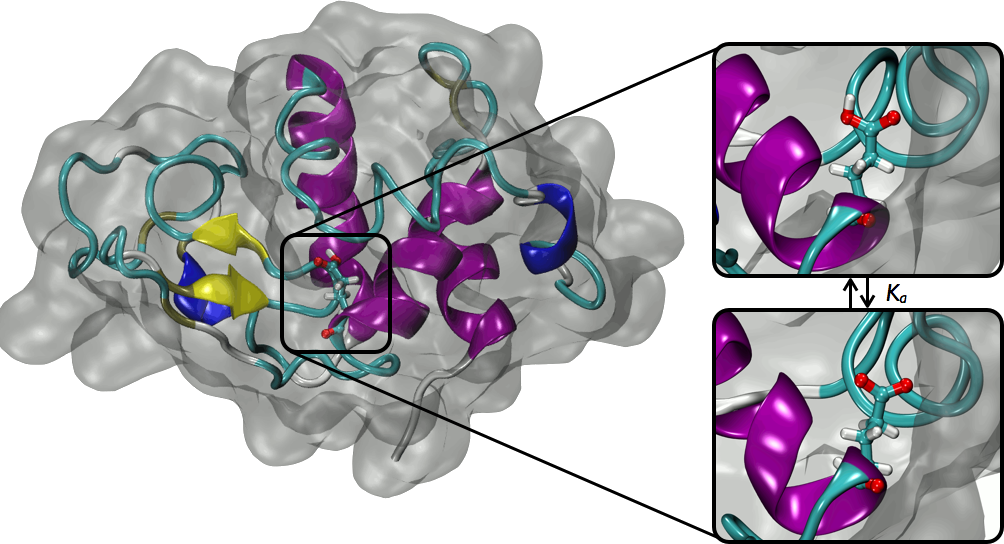(Note: These tutorials are meant to provide
illustrative examples of how to use the AMBER software suite to carry out
simulations that can be run on a simple workstation in a reasonable period of
time. They do not necessarily provide the optimal choice of parameters or
methods for the particular application area.)
Copyright Jason Swails & T. Dwight McGee Jr. 2013
Constant pH MD Example
Calculating pKas for titratable side chains in HEWL
By Jason Swails and T. Dwight McGee Jr.

In this tutorial, we will learn how to use software in Amber and AmberTools to carry out molecular dynamics simulations at constant pH (CpHMD) on the hen egg white lysozyme (HEWL). HEWL is a common benchmark for simulations at constant pH. The CpHMD method was implemented in sander by John Mongan, and is described in the corresponding journal article. [1] This tutorial will assume familiarity with Ref. [1], and will outline only the practical steps for running CpHMD simulations.
The CpHMD method described by Mongan, et al. works only in Generalized Born implicit solvent. For Amber 12 and earlier, you must use sander to run calculations at constant pH. For Amber 14 and later, this method is available in both pmemd and pmemd.cuda as well.
This tutorial consists of four sections:
1) section1: Creating the initial structure and input files.
2) section2: Preparing the system by relaxing bad initial contacts, followed by heating and equilibration stages.
3) section3: Running the production simulations at different pH environments.
4) section4: Analyzing the results.
References
[1] John Mongan, David A. Case, and J. Andrew McCammon, "Constant pH molecular dynamics in generalized Born implicit solvent", J. Comput. Chem., 2004, 25 (16), pp. 2038-2048
(Note: These tutorials are meant to provide
illustrative examples of how to use the AMBER software suite to carry out
simulations that can be run on a simple workstation in a reasonable period of
time. They do not necessarily provide the optimal choice of parameters or
methods for the particular application area.)
Copyright Jason Swails & T. Dwight McGee Jr 2013


